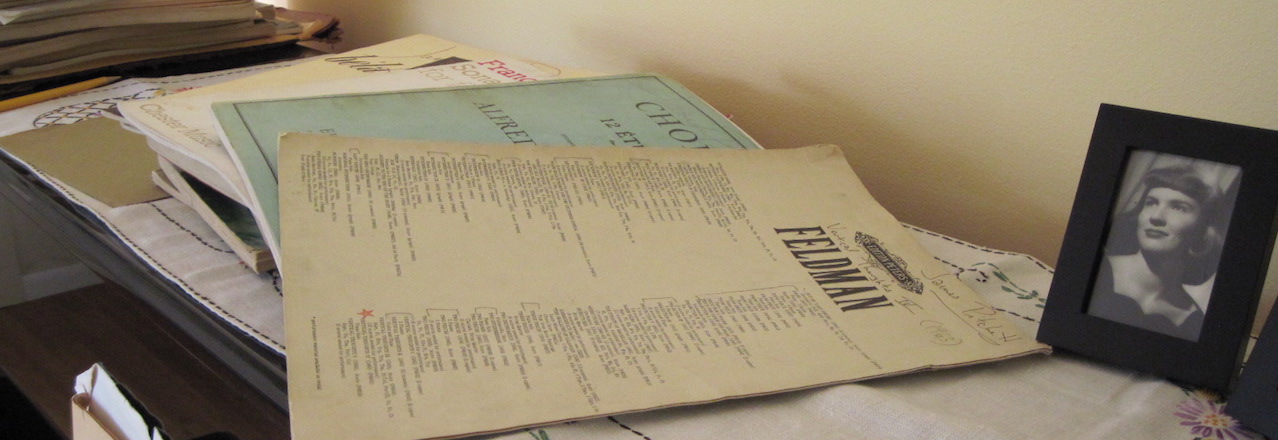During the interview I recently did in Barcelona with Lluís Nacenta, we talked a good deal about playing the piano and how I am using this as a way to explore Feldman’s music. I’ve had this idea that performing the pieces is a good place to start understanding the music, taking a tactile approach, literally feeling my way around the work.
I still am not sure whether I fully understand what that has meant or will mean, but my conversations with Lluís and with Aki Takahashi have made me realize that playing repertoire other than Feldman can inform my understanding of Feldman’s music, too. Aki recounted to me how Feldman, when he was coaching her, would frequently refer to the music of other composers—Schubert, Rachmaninoff, etc.—in order to describe the sound or effect he was after. Feldman was steeped in this other music, and, like most composers, it comes out again in his own work (this is a marked difference between Feldman and Cage). Similarly, I find myself drawing upon my personal musical history in working out passages in Feldman: phrasing, timing, tone are all products of playing habits developed over a lifetime.
All of this as a rationale for posting more playlists of what’s been reverberating around here (both externally and internally). Here’s what’s been going on in September/October:
- J. S. Bach: Prelude and fugue in c# (Well-tempered clavier I/4). I haven’t played Bach in ages and felt the need for that in my life. What has amazed me about this is the how utterly different the experience of playing this is from the experience of playing, say, the Chopin Barcarolle. That sounds like an obvious thing, but it’s not something I ever consciously realized before. Not just different in sound (that is obvious), but different in thought. The way I have to think in order to play Bach, even the way it sinks into my fingers, is totally unlike the way that this happened with Chopin. I found it very difficult at first, but I’m adapting now and it’s starting to come together. Still, playing the five-voice fugue is really mentally challenging: such density of music!
- Schumann: Arabeske, Op. 18. I learned the Blümenstück a year or so ago, and this piece is next to it in my Schumann collection. I also have a recording of Vladimir Horowitz playing it and was always blown away by the ending. The simplicity of the patterns and the constant sense of returning to somewhere you’ve been before puts me in mind of Feldman, although there really isn’t any deep connection here (I think).
- Isaac Albeniz: Cantos de España. I’ve had this score for ages and used to play through these back when I was in grad school. I dug them out when I found that I was going to Barcelona. Totally hokey, I know. But these pieces are so much fun to play, and Frances particularly loves “Cordoba” (me, too).
- Bill Evans: various solos. SheetMusicPlus.com has completely sucked me in. Retailers note: giving away $5 and $10 gift certificates with customer orders is a great tactic. I used one of these to buy some fun stuff, including a book of Bill Evans piano solos. I know nothing at all about jazz and have zero ability as a jazz pianist; never really tried to learn it. I like listening to jazz, and know a few Bill Evans recordings. I particularly like the song “Everything happens to me”, and bought the collection from SheetMusicPlus because it had that in it. I’ve been playing through a bunch of the numbers in this collection, turning our living room into a relaxing lounge of a Saturday evening. Inspired, I just put in an order for some bossa nova solos from the same series of collections.
With all of these, I’m starting to become aware of the different quality of mind that is involved in playing the different kinds of music. I’m engaged with the music differently for Bach, Schumann, Feldman, Evans as they unspool from my fingers. No clear insights are here yet, just an awareness of mind engaged with music (not just sound).
